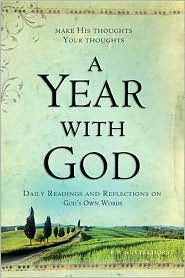Canon law preventing a priest from giving the police information so that they can rescue a boy being held by a child molester was a central plot point in last night’s Boston Legal. The priest in question refused to answer the police enquiries regarding a certain individual, claiming that he could not reveal what was said in confession. Of course, in real life, the church would not be so legalistic, I don’t think, and most priests would not be so nasty. But it worked as a fictional device, and it serves as a good illustration of legalism and how (as Christ’s points out) it gets in the way of doing what is right. Following the rules, he argues, sometimes means that you do the exactly wrong thing.
So is Christianity all about what I can’t do? Christians wonder, and those who are not Christians wonder for them, what is permitted and what is not permitted. Of course, this is like the question in the Hitchhiker’s Guide asked of Deep Thought: what is the meaning of life, the universe and everything? 42. And then Deep Thought points out that they are not asking the right question. Asking if Christianity is about what I can’t do, or asking about what is permitted and not permitted is the focus of most Christians through most of their lives, most of the time. It is the same thing that focuses the minds of the practioners of most faiths and even the minds of those who practice no faiths.
Unfortunately, the answer to that particular question is 42.
You see, it is the wrong question altogether, akin to asking about the nature of the ether, or the color of Unicorn blood. Those would both be the wrong question, given that the ether and Unicorns don’t exist. Perhaps a question more in keeping with, do they exist or not would get better traction.
So what is Christianity all about? Consider that Jesus told his disciples that all would know they were Christians by their love for one another. It wasn’t about their behavior, in avoiding certain “bad” things. Nor did it have anything to do with what they “believed”, another thing that is the focus of many Christians, once they get past the issue of what they can and cannot do; and of course that question tends to result in a lot of answers similar to 42 as well.
Our relationship with God is based on what he did on the cross, so perfection in our behavior and perfection in our beliefs have nothing to do with it. Jesus said that everything hinges on just two commands: to love God and to love people, and really, Paul and John seem to indicate that it mostly comes down to loving people, since that’s how love of God happens.
At the Garden of Eden incident, when Adam made a poor choice with the fruit of the tree of the knowledge of good and evil, it is important to notice that knowing good was as much a problem as knowing evil. When we ask the question, is this good or is this bad, we are already acting as fallen creatures. Ideally, as Bonhoeffer put it, we shouldn’t even think of such things: the right hand should not know what the left hand is doing. Our focus is ideally simply on Christ and acting or not acting; love is all that concerns us. And as Paul points out, love fulfills and sums up the law, because obviously, he says, if you love someone you want what’s best for them, and if you love them, you don’t hurt them. In loving someone, you avoid killing, stealing, and so on from them. Love fulfills all. If we focus on that, the rest takes care of itself and we’ll stop being puzzled by the number 42. We’ll finally have the right question, and then the answer is obvious.
Wednesday, December 07, 2005
Subscribe to:
Post Comments (Atom)






1 comment:
Dear Prof. Nettlehorst:
What a sweet little article, you are absolutely correct in what you say. I come from an independent, fundamental, king James type conservatism and I know from experience that legalistic service does nothing for the heart. Nor does it do anything to free the conscience. During a period of deep disillusionment with my self and what I perceived to be the faith, I searched long and hard to see if God really existed and if so, what did He want from me and us collectively,#42. Ultimately I gained assurance that God does live and what he wants is love His kind of love, plain and simple. Since I have thrown out legalism and fully embraced the law of love I find I’ve become more patient and understanding of all others without passing self-righteous judgements. I forgive without being asked. I find the resources we dedicate to the less fortunate have grown not because we have to share but because we want to. Virtues like compassion and mercy that are embodied in sincere love for unrelated others, are what I now pray and strive for. The law of love I now practice has truly set me free and I’m a better human being for it. When I say my evening prayers I no longer ask God to forgive me for liking Hollywood movies and Rock & Roll, my conscience is clear and I’m thankful to God for it. No more 42!
Sincerely,
Troy H.
Post a Comment